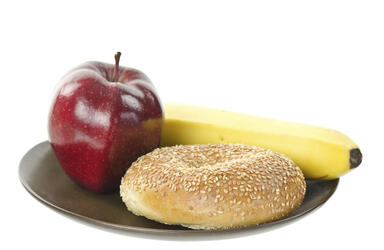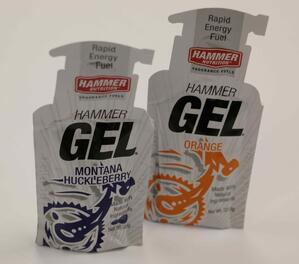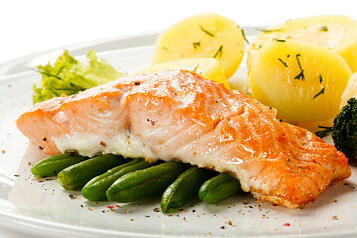You have trained for the marathon, half-marathon, triathlon or other race, and now it’s the big day! However, you need to make sure you are properly fueling your body with optimal nutrition to guarantee that you will cross the finish line feeling great! Here are some tips to ensure that will happen.
Before the Race
It is essential to have carbohydrates before racing. They provide the best source of energy for your body and give the most efficient fuel for working muscles. Examples of these are whole-wheat pasta, brown rice, whole-grain breads, cereals, bagels, oatmeal, and fruits and vegetables.
Protein helps with sustaining energy for longer periods of time. A small to moderate amount of protein-rich foods is essential before exercising. Examples include skim milk, 1% milk, or low-fat chocolate milk; low-fat cottage cheese or low-fat cheese; boiled eggs; peanut butter; yogurt; a small amount of nuts; lean meat, poultry, or fish; and soy products. Fat is stored in the body and is used as an important energy source. It is especially important for endurance athletes, such as runners.
Try to avoid high-fat foods because they may slow digestion. Examples of high-fat foods are crackers, chips, snack cakes, or muffins. Instead, opt for healthy sources of fat such as peanut butter, nuts, and olive oil.
Eating sugary foods before a race may cause side effects such as upset stomach, diarrhea, and hypoglycemia (low blood sugar). This can have a major effect on your race! You might think you get that burst of energy from the sugar, but the energy will peak quickly and will not last for a long time. Avoid pastries, donuts, and high-sugar cereals.
Drink 2 to 3 cups of fluids such as water, 100% juice, low-fat or skim milk, or a sports beverage two to three hours before the race, and then 1 more cup of fluid 10 to 20 minutes before the race. A small amount of coffee (6 to 8 oz.) may be an option, but be sure that it settles well in your stomach.
During the Race 
Drink at least 1 cup of fluid every 10 to 20 minutes during exercise (24 to 48 ounces per hour for most people). For every pound you lose during exercise, consume 2 to 3 cups of fluid. It is always good to calculate your sweat rate during training to know the proper amount of fluids you need to be taking in during the race. This can be done by weighing yourself before a workout and immediately afterward.
Water is always an excellent choice during the race, but for durations of longer than 60 to 90 minutes, it is important to take in some type of sports drink. Sports drinks provide a mix of water, carbohydrates, and electrolytes. Electrolytes are lost in sweat during the race, which is why sports drinks help replenish electrolytes in the body.
It is important to intake the proper amount of carbohydrates during the race. Consuming carbohydrates should be a goal during the race to help increase endurance; 60 to 70 grams per hour is recommended. Good options for getting in carbohydrates during the race are sports drinks, energy bars, GUs, gummy blocks, and Sport Beans. If you prefer consuming an energy bar during the race, it is important to consume a bar that is high in carbohydrates, but low in protein and fat. Make sure to take in 4 to 8 ounces of water with the gels or the energy bars to prevent an upset stomach. Consider how your body digests these different items. Go with the item that digests well for you and will help you stay at your optimum performance level. Always practice with these products during training and never try something new on race day.
After the Race
Here are some tips for recovering after the race:
- Aim to consume a 200- to 300-calorie snack within 30 minutes of finishing the race.
- Rehydrate with 16 to 24 ounces of fluid for every pound of body weight lost during the race.
- Eat a well-balanced meal that includes protein, fluids, carbohydrates, and electrolytes.

- Aim for 15 to 25 grams of protein to be consumed within 30 to 60 minutes after the race.
- Take in at least half a gram of carbohydrate per pound of body weight within the first hour after the race.
- Have salty snacks and sports drinks to help with replacing electrolytes, if it will be 3 to 4 hours until your next well-balanced meal.
Remember that training with certain foods is just as important as the physical training for the event! If you need help, consider a personal nutrition coaching session from NIFS.
If you are interested in having your questions answered during a personal nutrition consultation, please contact Lindsey Recker, lrecker@nifs.org or 317-274-3432, ext 239. Learn more about Nutrition and Wellness services at NIFS.
This blog was written by Angie Sheetz, Registered Dietitian. Read more about the NIFS bloggers.

